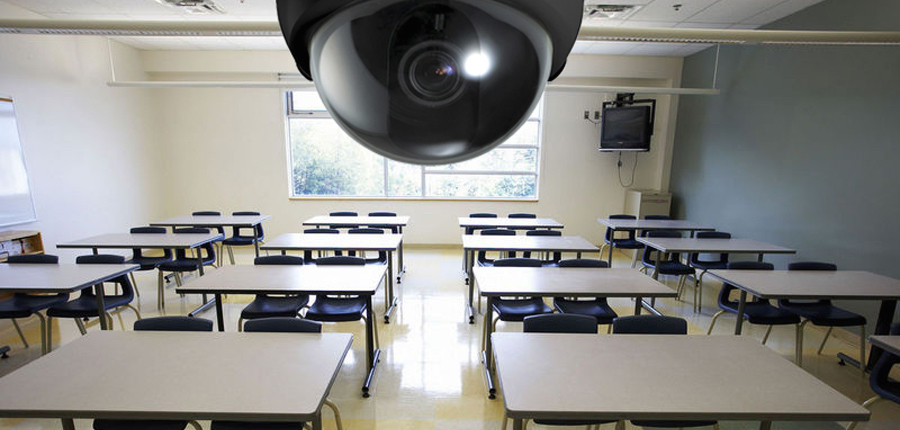Blog
Blog » DON’T PLAY BIG BROTHER AT A WORKLPLACE
DON’T PLAY BIG BROTHER AT A WORKLPLACE
15 January 2018
The European Court of Human Rights (ECHR) established in his fresh decision that the camera surveillance of lecture halls violated the professors’ right to privacy. Let’s see the details of the case and the findings of the Court.
 The European Court of Human Rights (ECHR) established in his fresh decision that the camera surveillance of lecture halls violated the professors’ right to privacy. Let’s see the details of the case and the findings of the Court.
The European Court of Human Rights (ECHR) established in his fresh decision that the camera surveillance of lecture halls violated the professors’ right to privacy. Let’s see the details of the case and the findings of the Court.
Backgrounds
The Dean of the School of Mathematics in Montenegro decided to install video surveillance in lecture halls. The aim of the surveillance was to ensure the safety of property and people as well as the surveillance of teaching.
After the installation of the camera system two professors filed a complaint at the Montenegro Personal Data Protection Agency. They claimed that their personal data was collected without their consent and there were other less invasive methods for protecting people and property.
Based on the complaint of the professors the Data Protection Agency established that the video surveillance of the lecture halls was not in compliance with the Data Protection Act and ordered the University to remove the cameras.
After this decision the professors claimed compensation before the domestic courts for violation of their right to private life and the unauthorized collection of their personal data.
As the domestic court rejected the professors’ claims they started a procedure before the Court claiming that their right to respect for private life has been violated.
Procedure and the decision of the Court
The Government of Montenegro requested the rejection of the professors’ complaint. Their main argumentation was that the university was a public institution and teaching was an activity of public interest which fell out of the scope of the private life. The lecture halls, unlike for example the offices of the professors, are a working area outside the scope of personal autonomy.
The Court rejected the Government’s above argumentation. The Court reminded that the majority of people are developing relationships with others at their workplaces which may be a private and not a professional activity. The employer cannot reduce the employees’ private social life in the workplace to zero. Thus, the Court declared that university lecture halls are teachers’ workplaces where they not only teach but interact with students constructing their social identity which falls into the scope of private life.
The Court further established that the camera surveillance had not been in accordance with the domestic data protection laws as the safety of property and people could have been ensured by less invasive ways and the surveillance of teaching was not a legitimate ground of using camera surveillance.
Lesson learnt
Before deciding about the installation of camera surveillance at your company make sure that it is in compliance with the data protection rules, especially with the GDPR. In particular, think over whether you have a legitimate ground for the installation and keep in mind that you cannot monitor your employees like a Big Brother.
-
WE ARE 15!
Recently we celebrated our 15th Anniversary, which is a very important milestone for us. Looking back, our Office went through a long improvement until the formation of our present profile: providing legal support in domestic and international commercial law issues and helping our clients doing business in Hungary.
Read more » -
When should employers pay the consideration for non-compete obligation in Hungary?
The Hungarian Labour Code does not specify the due date of the consideration for non-compete obligation, which resulted in legal uncertainty. Based on the recent case law, the judiciary filled this gap with legal interpretation. In our article we summarize this recent development in Hungarian labour law practice.
Read more » -
ARBITRATION PROCEEDINGS IN HUNGARY
The Hungarian arbitration procedure, compared to the Hungarian state court procedure, is much simpler, less formal. However, it is still necessary to know these simpler procedural rules, to conclude the dispute successfully. Consequently, we summarize below the most important procedural principles and rules based on the Hungarian Arbitration Act and on the Rules of Procedure.
Read more »